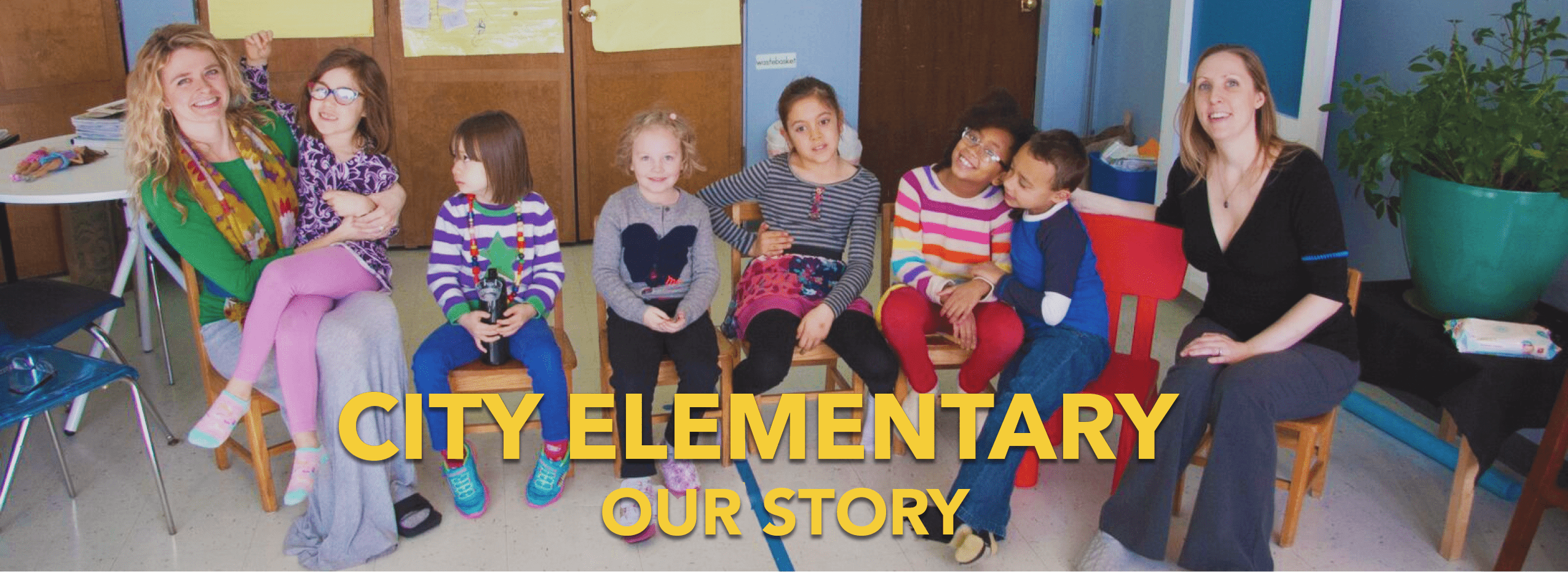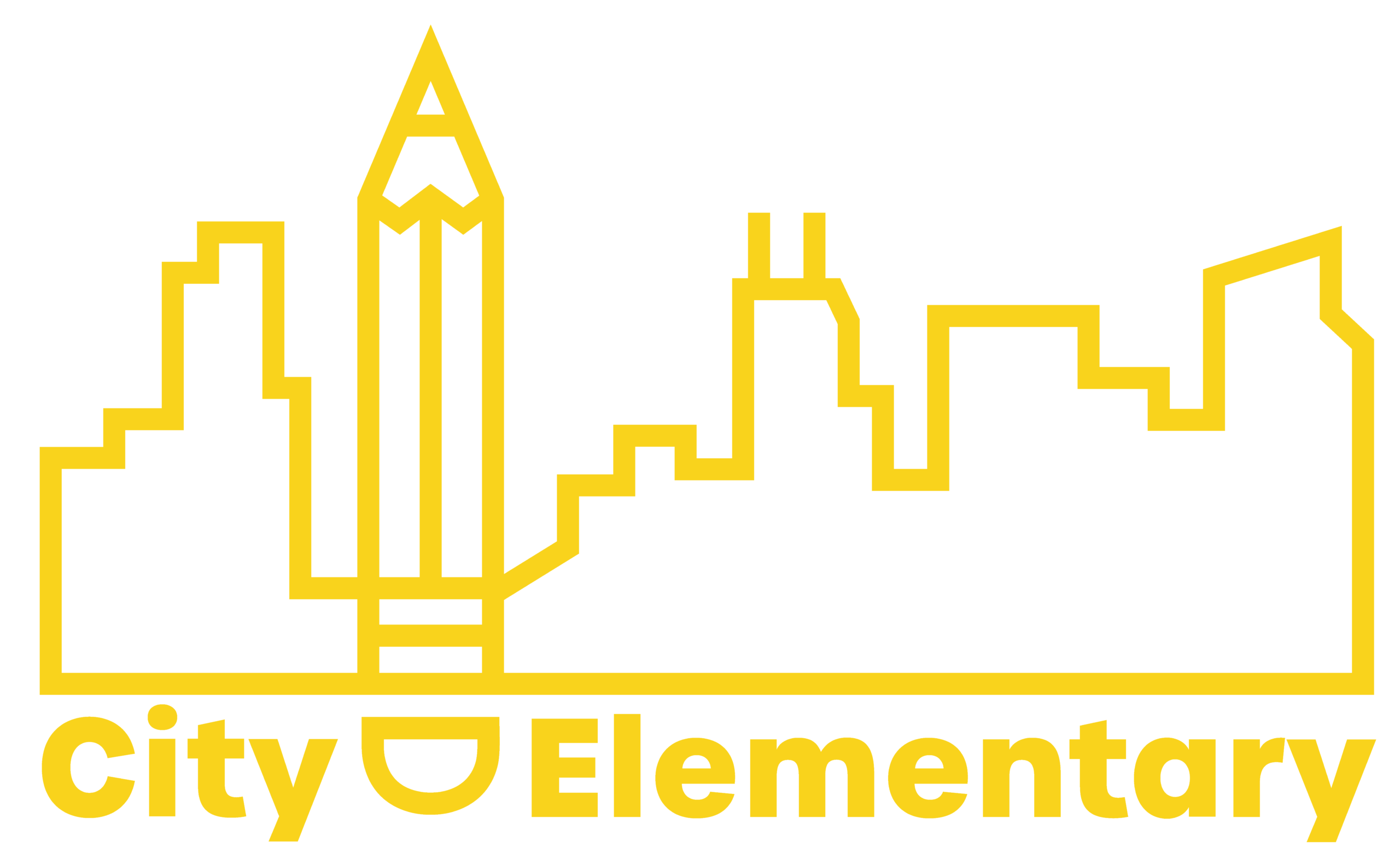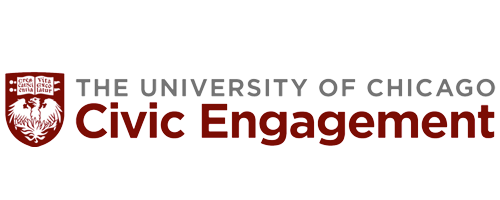City Elementary Values
and a life-long love of learning
Individualized
We honor each child’s unique learning profile, and leverage individual strengths and interests to unlock potential.
Structured
Our classrooms are designed with supports to allow students to understand and predict routines with engage with confidence.
Data Driven
Our model is rooted in empirically validated principles. We innovate and respond dynamically based on student data.
Collaborative
Our team fosters a continuity of learning between school, home, and community so so student progress is exponential.

City Elementary was founded by a small group of parents with a vision for a new kind of school.
The Rings family wanted what all parents want for their children: a rich and stimulating educational environment that is both nurturing and challenging. As they grappled with an alienating pre-school experience and a new autism diagnosis, they wondered where their child could reach his full potential. Their bright, inquisitive child had tremendous capacity to learn. But his neurodiverse brain and body required a particular kind of environment in order for him to thrive. After an exhaustive search, they concluded that none of the existing schools in Chicago provided the right fit. The Harp family found themselves in much the same position. Worried that there would be no academic home for their neurodiverse child, they considered moving away from Chicago or homeschooling. Instead, they decided to partner with the Rings and a handful of others and build a school where their children and others like them could flourish.
With guidance from an esteemed Advisory Board, these founding families designed the school to focus on individualized learning in small classrooms. They recruited highly skilled, empathic teachers, staff, and a head of school with whom students could develop trusting relationships. They developed a curriculum to help students grow socially, emotionally, and academically. They integrated a well-equipped sensory gym to promote regulation throughout the day, and worked collaboratively with occupational and speech therapists to provide continuous care. They prioritized social supports, which helped their children develop strong friendships and gain skills in conflict resolution, perspective taking, cooperation, compromise, risk taking, and leadership.City Elementary welcomed its inaugural cohort of students in fall 2014 and currently serves students from kindergarten through the eighth grade.
In keeping with the founding parents’ original vision, we are committed to meeting neurodiverse
learners where they are, providing a life-changing education.
Student Futures
Our former students have gone on to an inspiring range of successful futures after leaving City Elementary. Here are some of their next steps and best life lessons.

Elliott
Attends Lindblom Math and Science Academy, an academically selective 7–12 grade CPS public school in Englewood.
“City Elementary taught me how to be grounded and talk to other people in a healthy way. It taught me how to face challenge and how to regulate. That’s what I take forward from City.”
Ella
Attends Kenwood Math and Science Academy High School, a CPS public high school in Hyde Park.
“City Elementary got me ready for high school. I love being a Bronco!”
Antonio
Attends Fusion Academy, a private school where classes are one-to-one: one student and one teacher per classroom.
CJ
Attends Alcott College Prep, a CPS magnet high school in Roscoe Village.
“City Elementary made me ready to attend sleep away camp for three weeks at Interlochen Academy with kids from all over the world.”
Campbell
Attends Harriet Tubman, a CPS public elementary school in Lakeview.
“City Elementary helped me calm down.”
Xavier
Attends Bennett Day School, a private school in Chicago’s West Town neighborhood.
“What grew 3 levels in just 1 year at City Elementary? Me! My prior school did not meet me where I was at and I ended up several years behind in math and other areas. City got me caught up to my grade level in just one year by working directly with me. They also helped me learn confidence and advocacy which are important lessons I’ve carried forward. With their help, I was able to start freshman year at Bennett Day School, which is going great. Thank you City Elementary!”
Frequently Asked Questions
Learn more about our transformative school!
What type of school is City Elementary?
City Elementary is an independent, not-for-profit private school serving kindergarteners through eighth graders.
What kinds of students does City Elementary serve?
We address the needs of neurodiverse learners in our school’s design. Our classrooms are designed to be sensory-friendly and free of unnecessary distractors. Many of our students benefit from movement breaks and other sensory integration supports. Our teachers and staff use a well-equipped sensory gym and are trained in helping students get the input they need to stay regulated and ready to learn.
Social and emotional skills are a formal part of our curriculum. In addition, students are provided ample opportunities to work collaboratively with their peers. With support from teachers and staff, our students develop skills in communication, cooperation, negotiation, peaceful conflict resolution, empathy, and leadership.
Finally, our students often excel in some content areas and need additional support in others. They may vary in their preferred learning modality as well; some of our students are visual learners while others learn more efficiently through a kinesthetic mode. Our individualized approach allows us to tailor the pedagogy to each student’s unique learning profile.
What is the student to teacher ratio?
What is the tuition?
Annual tuition for the 2023-2024 school year is $29,600. Tuition can be paid upfront or in monthly installments.
Is financial aid available?
Making City Elementary available to all families, regardless of income, is one of the school’s highest priorities. We are actively seeking transformative charitable gifts to support endowed financial aid.
If you think City Elementary may be a good fit for your child but find the tuition prohibitive, please get in touch with us so that we can follow up if financial aid becomes available.
What does a typical day look like?
Next, each classroom has Morning Circle, a valuable opportunity for students to come together as members of a classroom community. The teacher orients the students to the events of the day and provides an overview of their schedule. The teacher also provides a brief lesson and the students work collaboratively to solve a problem. Finally, students share anecdotes, offer ideas, and deepen friendships.
From there, the students move through a series of instructional periods covering math, language arts, science, and social studies. Partnerships foster a wide-ranging series of electives, including art, rock band, social music, philosophy, and diversity-equity-inclusion (DEI) lessons. Movement breaks (using a wide array of sensory equipment) are interspersed throughout the day. Students enjoy a communal lunch with the teachers and staff followed by a daily recess period on our playground. Our students go outside on all but the most inhospitable days. At the end of the day, students work together as a community to tidy the classrooms in preparation for the following day’s activities.
The day ends with Closing Circle where students review the day and collect any papers or work that needs to go home.
How are social skills taught at City Elementary?
We use the Social Thinking curriculum developed by Marcia Gay Winner to help students navigate social situations and develop friendships. We teach using visuals in group settings to help foster friendships and collaboration among our students. We actively mentor students in developing skills like perspective taking and flexibility, helping students gradually learn to modulate their responses to unexpected challenges.
This work takes place throughout the day and especially during Cake Hour, a special time we set aside each week to come together as a community. Over cake, we participate in exercises designed to flex our empathy muscles. Then one person shares a problem they are facing. We validate, empathize, and work together to find a solution if such is desired. By putting ourselves in someone else’s shoes, looking at the world through their eyes, and contemplating how they might feel, we gain new insights into human nature, friendship, connection, kindness, and community.
Are there opportunities for students to interact with typically developing peers?
Absolutely. Inclusion opportunities are critical to our students’ growth and development. We’re fortunate to share a building with another small independent elementary school, the Chicago Free School and our students interact regularly. Often it’s as simple as playing tag, taking turns, and talking video games on the playground, but it also involves more coordinated interactions. Students have previously collaborated in clubs and events such as Reading Buddies, Comics Club, Party Planning Committee, and a talent show. Partnerships also provide wonderful opportunities to interact in meaningful ways with neuro-typical peers and college-aged role models.
Is aftercare available?
Yes, we partner with Chicago Free School to provide inclusive aftercare programming.
How is student progress assessed and communicated to parents?
Is City Elementary accredited?
What is our anti-bullying policy?
Click here to read our anti-bullying policy.
If my student attends this special school now, will they ever be able to succeed in a traditional school? What is next after City?
Press
See City Elementary in the news!
Let's Talk! We would love to hear from you!





